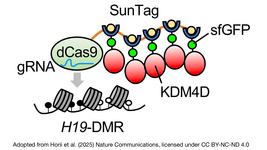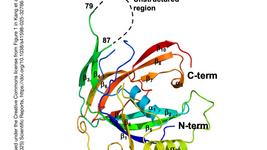CRISPR Deciphers lncRNA Role in Breast Cancer
The investigation began with a CRISPR-Cas13d-based screening of 844 breast cancer-associated lncRNAs to identify those impacting cell proliferation in breast cells. KILR was singled out due to its role in modulating cell proliferation, and the researchers conducted KILR pull-down assays followed by mass spectrometry to discern binding proteins. Further knockdown and overexpression studies were performed to unveil the mechanisms through which KILR regulates cell proliferation.
The study highlights that KILR functions as a tumour suppressor by safeguarding against uncontrolled cell growth. A reduced expression of KILR, due to a risk haplotype, decreases its half-life, subsequently disrupting DNA replication and repair by altering the availability of RPA1, a critical protein in these processes. Additionally, while overexpression of KILR in breast cancer cells triggers apoptosis, it does not affect normal cells.
The findings not only underscore the importance of KILR in breast cancer pathology but also highlight the potential of lncRNAs as promising targets for therapeutic intervention. They also call for the annotation of noncoding transcripts in studies investigating genome-wide association study (GWAS) variants, underscoring the necessity of functional annotations in understanding genetic contributions to disease.
Juliet French, affiliated with The University of Queensland in Brisbane, Australia, conducted the study, which was published in Molecular Cancer yesterday.
To get more of the CRISPR Medicine News delivered to your inbox, sign up to the free weekly CMN Newsletter here.
Tags
CLINICAL TRIALS
Sponsors:
Base Therapeutics (Shanghai) Co., Ltd.
Sponsors:
Base Therapeutics (Shanghai) Co., Ltd.







